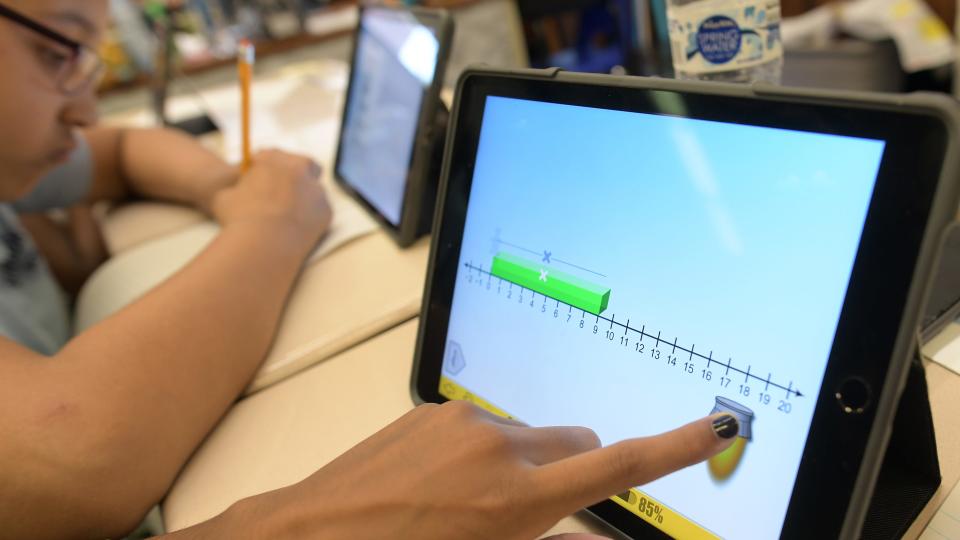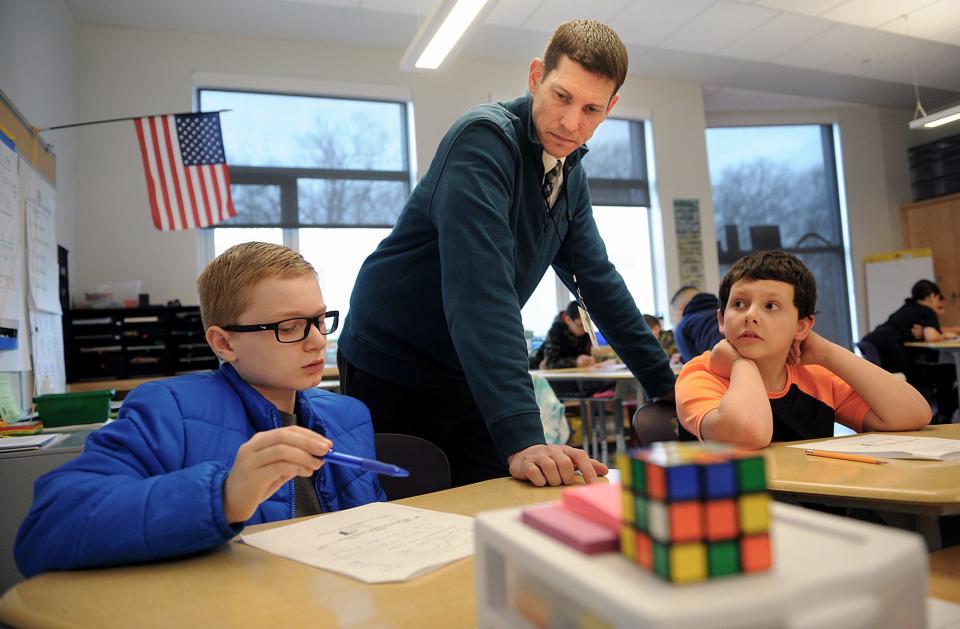Massachusetts educators push to change MCAS requirement for high school graduation
BOSTON — Teachers and educators are calling for the state to change its MCAS requirement for graduation, arguing that it does not accurately measure student achievement or school performance.
Advocates have filed two ballot initiatives — one to remove the MCAS as a graduation requirement, and another that would allow districts to determine whether a student has satisfied curriculum requirements.
Craig Consigli, an assistant superintendent at Milford Public Schools, said the act of taking the MCAS — a three-hour test — is uncommon for students, and not reflective of a normal learning experience.
“It’s stressful for sixth graders, it’s stressful for 10th graders,” he said. “Then when you put on top of it, if you don’t pass this test you don’t get a diploma, I can’t imagine the stress and pressure these kids feel.”

'Not the best indicator': Fewer students are taking the SAT; many educators aren't worried
Among those trying to change the state’s education evaluation model is the Massachusetts Consortium for Innovative Education Assessment, a partnership of eight public school districts, including Milford, Boston and Revere.
MCIEA, alongside the Education Commonwealth Project, held a briefing last week explaining the ways classrooms are using new systems to evaluate students and schools.
Educator says MCAS is 'insufficient' for measuring student learning
Jack Schneider, co-founder of MCIEA and a professor at UMass Amherst, said the ultimate goal of MCIEA is to create an evaluation model that “actually honors the many things that we want our public schools to do,” and helps educators figure out what it means to be a good school.
Schneider said current standardized testing is “insufficient” for measuring student learning and broader school quality. He added that requiring standardized testing as a requirement for graduation has “unintended consequences.”
“California dropped it (their exit exam) because what they found was high school diplomas were disproportionately being denied to low-income students, students of color,” he said.
'Thrive Act' proposes to eliminate, reform MCAS graduation requirement
A bill to eliminate and reform the MCAS requirement, known as the Thrive Act, has been filed in the House by state Reps. Jim Hawkins, D-Attleboro, and Samantha Montaño, D-Boston.
State Rep. Brian Murray, D-Milford, supports the Thrive Act, saying the MCAS is not a real indication of actual learning.
He said MCAS results paint an oversimplified, incomplete picture of what goes on in a school, and results from Milford are hard to compare to other schools because of ethnic and economic differences.

“The Milford Public School System is on the cutting edge of alternative measurement criteria,” he said. “I think you have to come up with a more realistic, practical, larger picture way of assessing performance.”
Test supporters acknowledge the exam needs “targeted revision” but say it's the primary way to provide students, families, educators and policymakers with objective and reliable information to prepare college and career success.
MCIEA’s program is comprised of what it calls performance assessments and school quality measures, which measure the effectiveness of learning and overall school quality, respectively.
Giving students a way to showcase what they have learned
Dan Cote, a teacher at Stacy Middle School in Milford, said using performance assessments in his classroom offers quality collaborative learning experiences that give his students a different way to showcase what they have learned.
MCIEA lists examples of its performance assessments online. One task, for example, has students designing buildings for a fictitious city using rudimentary geometric shapes.
“Doing tasks incorporates a lot of these skills that they will be using within the real world that are not necessarily assessed (by the MCAS),” Cote said.
Caridad Lopez, principal of Stacy Middle School, said collecting data with school quality measures helped her administration figure out how to address issues outside of the classroom.
Caridad Lopez hired: New Stacy Middle School principal hopes to foster sense of belonging
She said based on survey data, the school created an e-sports club and rescheduled extracurriculars in the morning and afternoon to get more students involved in the community.
“It’s really eye-opening,” Cote said. “We had a very different view of certain fields that the kids had the opposite perspective, and that’s when we started to figure out, ‘Why is there such like a difference in our views?’”
Right now, Schneider said they are “constantly struggling” to train and develop staff members, especially with such a small budget.
“I think that people believe in the work and they see this not just work that benefits member districts, but work that has power to benefit all students here in Massachusetts,” he said.
This article originally appeared on MetroWest Daily News: MA educators argue MCAS doesn't accurately measure student achievement

